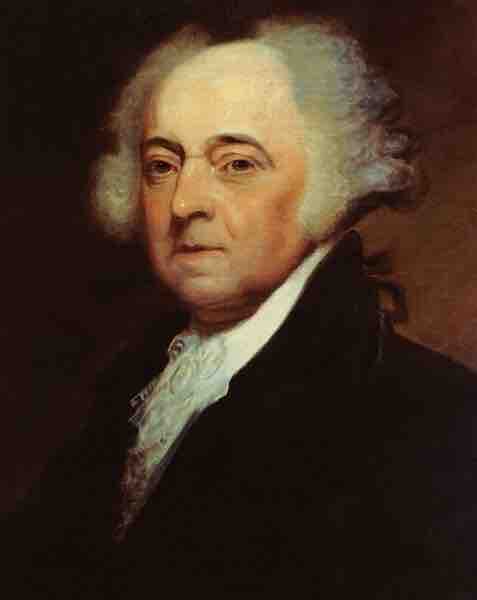Sunset Laws
A sunset provision or clause in public policy is a measure within a statute, regulation, or other law that provides for the law to cease to have effect after a specific date, unless further legislative action is taken to extend the law. Most laws do not have sunset clauses and therefore remain in force indefinitely.
In American federal law parlance, legislation that is meant to renew an expired mandate is known as a reauthorization act or extension act. Extensive political wrangling before final votes may precede reauthorizations of controversial laws or agencies.
The Sedition Act of 1798 was a political tool used by John Adams and the Federalist Party to suppress opposition that contained a sunset provision. The authors ensured the act would terminate at the end of Adams's term (the date the law would cease) so that Democratic Republicans against the Federalist Party could not use it.

John Adams
John Adams and his Federalist Party used a sunset provision in the Sedition Act of 1798 to ensure that the Sedition Act would cease once Adams was out of office.
Several surveillance portions of the USA Patriot Act were originally set to expire on December 31, 2005. These were later renewed, but expired again on March 10, 2006, and was renewed once more in 2010. The Patriot Act is a sunset law on wiretapping for terrorism cases, wiretapping for computer fraud and abuse, sharing of wiretap and foreign intelligence information, warranted seizure of voicemail messages, computer trespasser communications, nationwide service or warrants for electronic evidence, and privacy violation of civil liability.
The Congressional Budget Act governs the role of Congress in the budget process. Among other provisions, it affects Senate rules of debate during the budget reconciliation, not least by preventing the use of the filibuster against the budget resolutions. The Byrd rule was adopted in 1985 and amended in 1990 to modify the Budget Act and is contained in section 313. The rule allows Senators to raise a point of order against any provision held to be extraneous, where extraneous is defined according to one of several criteria. The definition of extraneous includes provisions that are outside the jurisdiction of the committee or that do not affect revenues or outlays.
In the Economic Growth and Tax Relief Reconciliation Act of 2001, the US Congress enacted a phase-out of the federal estate tax over the following 10 years, so that the tax would be completely repealed in 2010. However, while a majority of the Senate favored the repeal, there was not a three-fifths supermajority in favor. Therefore, a sunset provision in the Act reinstated the tax to its original levels on January 1, 2011 in order to comply with the Byrd Rule. As of April 2011, Republicans in Congress have tried to repeal the sunset provision, but their efforts have been unsuccessful. Uncertainty over the prolonged existence of the sunset provision has made estate planning more complicated.